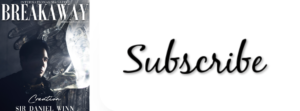Columbus, Ohio: Interview with Noel Frederick Mehlo, Jr. on his novel The Lost Ranger: A Soldier’s Story
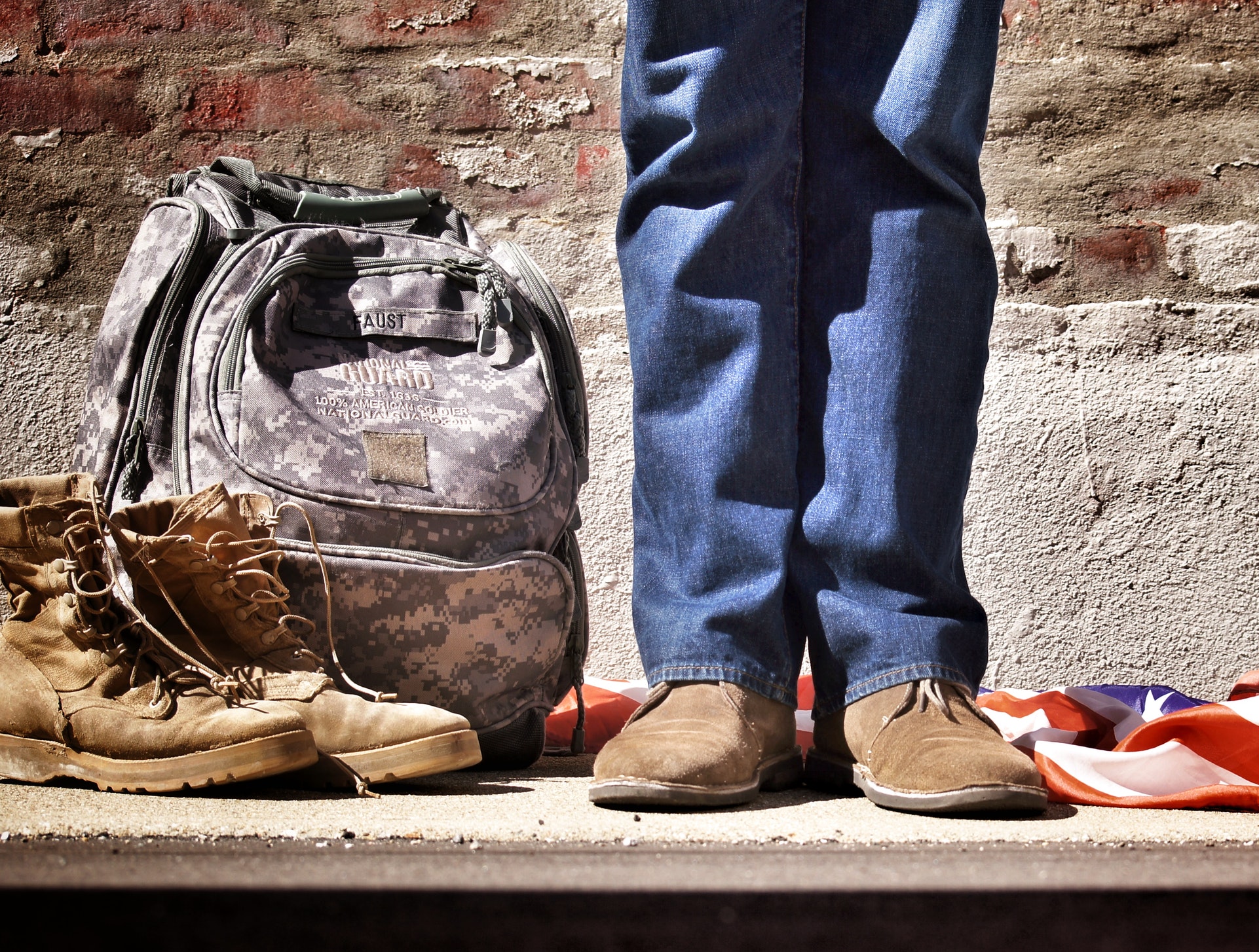
Brave men from the 5th Ranger Infantry Battalion were decimated on their path from the bloody June 6, 1944, D-Day invasion on Omaha beach to assaulting the fort at Brest, France five months later. Their story is told in The Lost Ranger: A Soldier’s Story, an extensively researched novel that examines the unit that the author’s grandfather, Staff Sergeant Herbert Stanton Hull, served in during the war.
The author, Noel Fredrick Mehlo Jr., served in the U.S. Army as a Counterintelligence Agent working and training in support of Army Central Command (ARCENT) Counterintelligence activities in the Middle East, to include counterespionage and counterterrorism. Following his grandfather’s example to serve, Noel served in the Middle East where he was awarded the Soldier’s Medal for heroism for actions in September 1994. Noel describes himself as an avid reader and researcher and a lifelong student of American Military history. He graduated from The Ohio State University with a B.Sc. in Soil Science, and is currently employed by the Federal Highway Administration as an Environmental Specialist. In this capacity, he provides federal oversight of the NEPA process in Ohio. He has over twenty years of experience in various environmental disciplines including historical and cultural resources.
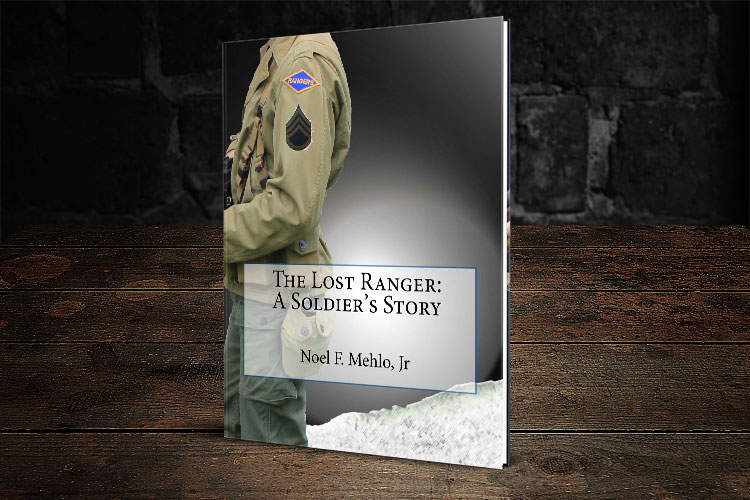
BREAKAWAY DAILY: Can you describe your debut novel, The Lost Ranger?
Noel Fredrick Mehlo: The novel is about my late grandpa, Staff Sergeant Herbert Hull, 5th Ranger Infantry Battalion. The book is a manifestation of a quest to discover him as he was lost to history both to our family and also lost to the history of the unit with which he served. The journey took me deep into what it took to become a soldier in World War II, and then to become a Ranger training for and then landing on D-Day and fighting at Brest, France.
It is a multifaceted mystery steeped in grit and determination of the special warfare community, and also of how a loved one was lost, ultimately revealing a clearer picture of his death ten years after the war as a father of a young family.
BD: How did the idea for the book develop?
NFM: The initial intent of the project had nothing to do with writing a book. I was intent on finding out about his military service and to generate a notebook for members of the family to better understand his accomplishments during the war as I uncovered them.
As my quest advanced, I was honored to meet many of the few remaining veterans of this Ranger battalion. Among these were retired Major General John C. Raaen, Jr. He was the first in the Ranger community to take my research and story seriously, and because of his support, other Rangers and families opened up their hearts and stories to me. Once I completed my family notebook, I presented a copy to the General. I also submitted correspondence to the Army, who in turn presented our family with those medals and honors due to Ranger Hull.
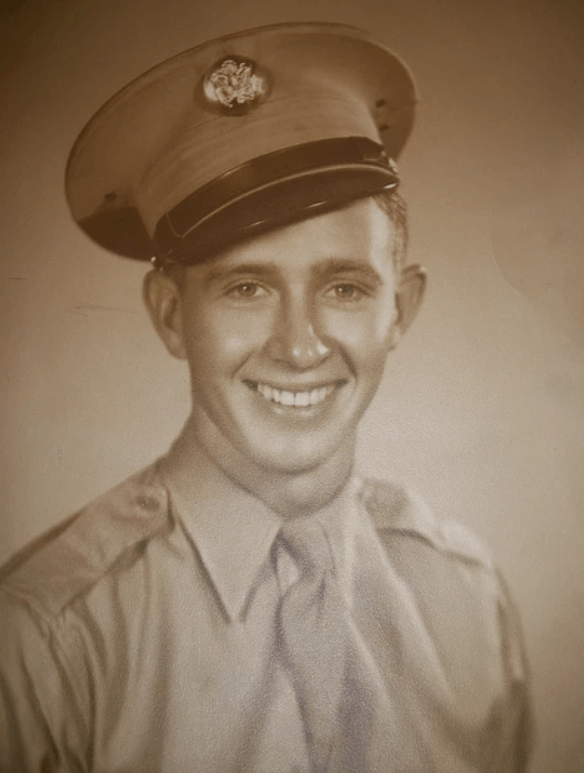
BD: What was the exact moment a family notebook became a novel?
NFM: Interested in the nature and depth of my research, General Raaen intently reviewed it. Upon his review, he told me that he had never seen the amount of research that I had accumulated on his former unit in all his years since the war, and that I should consider writing a book. I thought to myself, what does a soldier do when a General gives an order? I relied, “Yes Sir.” I then thought about the compelling nature of the journey to find him itself and began the process of crafting the book.
I then thought about the compelling nature of the journey to find him itself and began the process of crafting the book.
BD: This book does not just have WWII historical research, but familial family research. Can you tell us about that?
NFM: Herb Hull died in 1954, ten years after the war. For nearly 60 years, members of our family had been told that he had committed suicide. The event of his death was intensely painful to many members of the family, particularly to my mother and her siblings. He was not openly discussed as they grew. Family ties between them and their extended family on his side grew distant and fractured.
When my grandmother died in 2011, I inherited his WWII uniform, this opened my mind to questions I had held for all of my life. Also with her passing, I took it upon myself to reach out to distant cousins and investigate the familial side of things, including the more standard genealogical fare that many families take for granted.
As each person opened up, I gained more insight, not only into them as individuals, but to the overall family tapestry. I conclude now, that each of us has a rich tapestry of history in our own lives, and I wanted to infuse a sense of that into this work.
BD: Why did you think it was vital for your first novel to be about (and pay tribute to) your grandfather, Staff Sergeant Herbert Hull, and his service in WWII?
NFM: The Lost Ranger is more than a tribute to Ranger Hull. The many extraordinary men and their families that have opened themselves to me, dictated that their story be told in a way that no other author has done for them.
General Raaen, Private First Class Randall Ching, James Robert “JR” Copeland, Lew Height, Richard “Doc” Felix, and the many others and their families are the reason. The book served as an instrument of healing for our family, and my hope that future generations will continue to know and understand what World War II cost, that it was more than just a collection of old black and white movies or disjointed narratives of battles in faraway places. It involved life and death for a group of men who each volunteered for the duty they embarked on.
It involved life and death for a group of men who each volunteered for the duty they embarked on.
BD: Why do you think his experience was unknown to your family?
NFM: His experience was unknown to the family for a number of reasons. First and foremost was the nature of his death. The book reveals the nature of his death in the climax to be something far more sinister than the 60-year belief of a suicide. The fact that he died when my mother and her siblings were so young left them broken and it fractured the family in very complicated ways. It is still very sensitive and hard for all of them to talk about it. The passage of time did the rest.
BD: How long did it take to research?
NFM: I began researching this in January 2012 upon receipt of his uniform and a single page from his discharge papers. I first published the Lost Ranger in August 2014. I continued to research and refine my work throughout the process. The family notebook I spoke of earlier that served as the catalyst was complete within 10 months in 2012.
BD: Where did you start, and what kind of research did you do?
NFM: I started with the known books on the 5th Ranger Infantry Battalion. I am a scientist, and a former intelligence professional, so research is no stranger to me. I began using these skills and poured through many resources, including many available online and also travelled to archival records at the U.S. Army Heritage and Education Center at the U.S. Army War College, the Cornelius Ryan Collection at Ohio University, the National Archives and Records Administration in St. Louis, MO and in College Park, MD. As I went, I contacted historians and others all over the word in this task. I developed several strong relations with historians in England and France that opened many doors.
BD: How did your research form the book itself?
NFM: As I wrote, a formula emerged for the book, essentially setting each chapter up as a mini story in and of itself. Each chapter is focused on a geographic location. I then opted to tell a brief history of that place, the unit and men involved, and then the story of what happened during the time frame included and how it affected Ranger Hull and the other men. In doing this, I was able to introduce new characters into the story and begin to weave their stories into the larger picture resulting in a clear view of the brotherhood and love shared for each other by these men.
BD: You included hundreds of photographs, traveled to many locations and spoke with many people in order to help the reader appreciate this period of history. Can you talk a bit about that?
NFM: When General Raaen told me to write a book I decided that if I was going to do so, I must write a book that I would enjoy reading. I love history. I am also an artist, and I understand that the visual can often convey emotion or detail that words can overlook or fall short in their attempt.
The book has around 450 images. These are among a smattering of the thousands of images I uncovered during my research. As I went, and I came across the many photos and maps that are represented, I realized that they tell much of the story for me, even though my book has over 187,000 words.
For example, for the chapter on D-Day, I think it really helps the reader understand exactly what they are reading if they can see the beach; to see exactly where the men landed through a full understanding of them through the maps and photos such as the ones of the exploding landing vessel that occurred a mere football field away from my grandpa. To see letters home or to see the Army training materials that the men themselves read in the early 1940s helps put the reader into the mind of the soldiers.
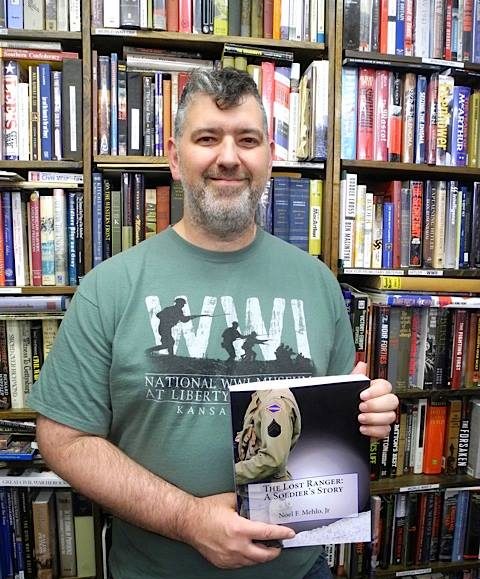
BD: Who are the men most responsible for the rich and detailed story about your grandfather and his Ranger unit?
NFM: The three Rangers who I credit the most in all of this were General Raaen, Pfc Ching and S/Sgt Copeland. Their time spent with me was invaluable. I physically visited with Rangers Ching and Copeland and General Raaen and I enjoy a friendship of emails and calls even to this day. Their detailed accounts are unpublished for the most part with the exception of General Raaen’s accounts of D-Day in his book, Intact: a First-hand Account of the D-day Invasion from a Fifth Rangers Company Commander.
I think that the first-hand accounts of these men and the others, all served to corroborate the facts and enabled the story to emerge in a rich level of detail. Rangers Ching and Copeland were on the same landing craft with my grandpa on D-Day and their stories “helped me to know my grandfather through their eyes” as Ranger Ching told me in person. Ranger Ching, in believing in what I was doing so strongly, opened up to his own family secrets and facts about his wartime experience he had held close to the chest for 70 years.
As another example, to sit in the living room with Ranger Copeland and to see the scars on his legs earned through his landing on D-Day as an MG-42 shot through his shin helped me understand. Hopefully, I was able to infuse that understanding into the book. The level of detail shared led to a complete picture that emerged about the unit and my grandpa.
The level of detail shared led to a complete picture that emerged about the unit and my grandpa.
BD: What was something surprising you discovered while researching and writing this book, both about your grandfather and WWII?
NFM: I was surprised, as was our family, to learn the shocking truth about how he actually died in 1954. This came out as a family member recalled long dormant and extremely painful memories.
I was surprised to learn the shocking truth of his military history and as to what kind of man he was in the eyes of his fellow Rangers. I was surprised to learn of the intensity of the training and preparation that went into the D-Day landings. The ferocity of the landings continues to floor me as does the heroism of all of these American heroes.
My daughter said, “It was shocking to hear the depth and first-hand accounts of the folks who were there, the lost limbs, blown up intestines and bodies.”
BD: Who do you hope reads this book?
NFM: I think that anyone in middle-school or above can read the book. I am certain that anyone with an interest in American military history, D-Day, World War II, how to research a loved one, or people who love mysteries will all be drawn to this book.
My daughter said, “Young people should read this book. Many people no longer understand what World War II was about. There is no respect for veterans and their sacrifices. They need to know it is not a laughing matter, and allow it to hit home. It happened so long ago that there are few veterans who are still alive. As time passes we are less and less likely to get first-hand accounts.”
The Lost Ranger: A Soldier’s Story is available via Amazon.
Breakaway Magazine writes thought-provoking stories that transcend boundaries, providing transformative viewpoints on breaking barriers. Through an international readership of millions, every story empowers readers interested in gaining a wider outlook on life through diverse voices. "The magazine reaches millions, connecting with an audience interested in more than just the trend, but the deeper meaning." - Jamee Livingston, Founder/Editor-In-Chief. Read more on our about page.


